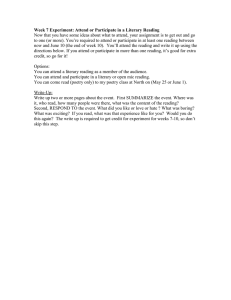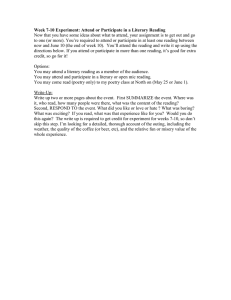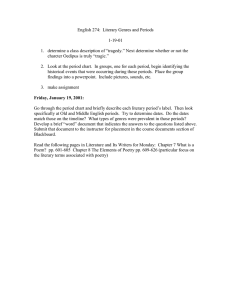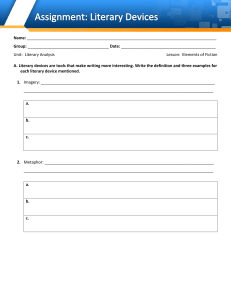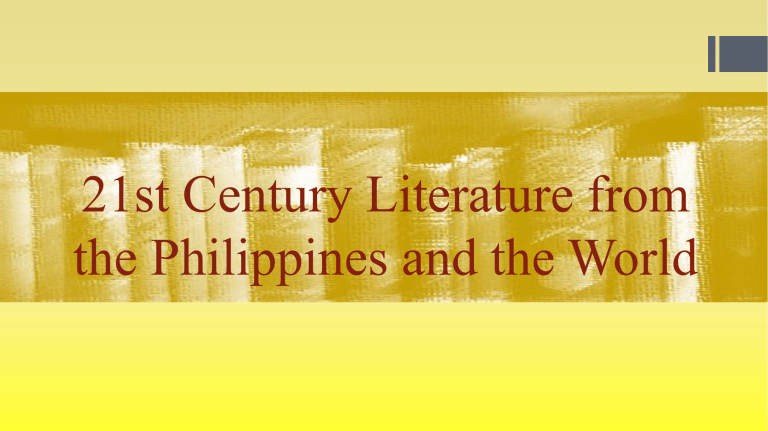
21st Century Literature from the Philippines and the World This course aims to engage students in appreciation and critical study of 21st Century Literature from the Philippines and the World encompassing their various dimensions, genres, elements, structures, contexts, and traditions. Study and appreciation of the literature of the region where the school is located in relation to the literature of the other regions of the country. Grading System Written Works -------------- 25% Performance Task --------- 50% Quarterly Assessment --- 25% 100% What is literature? Literature ( from the Latin littera meaning ‘letters’ ) is the written work of a specific culture, sub-culture, religion, philosophy or the study of such written work which may appear in poetry or prose. Literature can be defined in several ways : Written work with artistic value: written works, examples are fiction, poetry, drama that are recognized as having important or permanent value. Body of written works: body of written works of culture, language, people, or period of time. Example is Philippine Literature Writings on subject: the body of published work concerned with a particular subject, example: scientific literature body of music: the body of musical compositions for a particular instrument or groups of instruments example: literature for piano printed information: printed matter such as brochures or flyers that give information, example: the company’s promotional literature production of literary works: the creation of literary works. Universal Characteristics of Literature TIMELESSNESS Literature knows no expiration and has no immortality and capability to cross time bounderies. ETERNITY pertains to the moral values of the literary masterpieces towards its audience. UNIVERSALITY This literature characteristics pertains to the global applicability in which a work transcends across culture, gender, religion, age and time and generation. PERMANENCE Literature is a permanent expression in words of some thoughts or feelings or idea about life and the world. Significance of studying literature •Understanding social milieu •Understanding culture •Understanding human nature and behavior •Develop historical sense •By studying good literature, we learn more about human problems and difficulties Universality of such problems and ways to overcome them Make ourselves better human beings Humanity and compassion International understanding and world peace Pause and Reflect Direction : Answer the following questions briefly. 1. What motivates you to read ? What types of stories you love to read ? 2. Where do you feel comfortable to read ? When and How often you read ? 3. Between printed books and electronic books, which do you prefer to read and why? ACTIVITY 1 List problems or issues that Filipinos of today face or experience and categorize them as indicated in the chart. With a partner, discuss these issues and then prepare to share your conclusions with the class. Issues presented in your chart are usually the same issues presented in pieces of literary works. As the discussion on literature continues, you will encounter some of these issues and these may be present in some or all of the periods in our Philippine Literature history.
